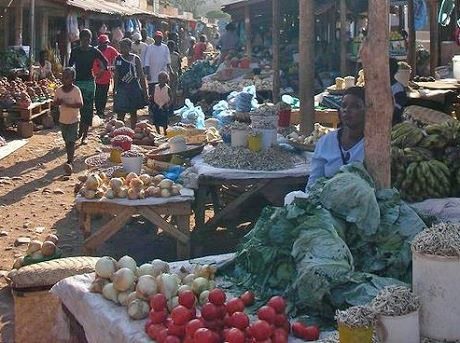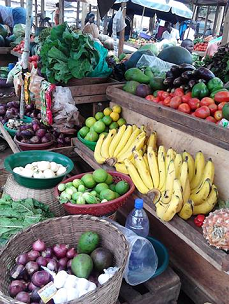Zambia’s cholera outbreak of almost two years ago has been the impetus behind the development of the country’s first agent commission-based fresh produce market, specifically aimed at taking the produce of small-scale farmers.
Fresh produce sold at informal markets was implicated in the outbreak which killed 114. Highly variable quality, inconsistent supply, little waste removal and absolutely no traceability are the issues that Savenda Global Capital Partners want to address in the planned ZambiaFresh Lusaka Market, to be situated on 10ha southeast of the capital Lusaka.
At last week’s PMA Fresh Connections conference, Sean Moolenschot of Savenda Global Capital Partners (right) announced the construction of the market, planned to be in operation next year. It will consist of a 6,500m2 trading facility (whose floor space could be more than tripled) with cold rooms and ripening facilities, and complemented by a food hub precinct in order to add further revenue lines from fresh, frozen and dried product.
Living leaves and lettuce are difficult to find in Zambia, thus an aeroponic growing facility will be attached to the market.
Market for the benefit of farmers
Two principles inform the market: it should be an active roleplayer in sourcing supply, building capacity among farmers and it should be established for the benefit of farmers (as was the case in the development of South Africa’s fresh produce markets over many years and within a comprehensive enabling legal framework, resulting in a system Sean calls “unique” and largely responsible for the country’s horticultural success).
“The horticultural sector in Zambia is thriving,” Sean told delegates, “Approximately one million tonnes of produce is traded every year, of which a third is consumed in the general area around Lusaka. We want to bring the possibility of real price discovery to small-scale Zambian farmers.”
 Food stalls in Chipata, in the east of Zambia (photo: Brian Dell)
Food stalls in Chipata, in the east of Zambia (photo: Brian Dell)
At last year’s PMA Fresh Connections conference, independent consultant Coillard Hamusimbi and the head of agribusiness at FNBZambia (subsidiary of the South African First National Bank) Cheyo Mwenechanya and Jaco Oosthuizen, CEO of RSA market agency, delivered a presentation on the growth of the urbanised middle class in Zambia. The influential RSA Group are involved in the Zambian development.
Partnerships, even outside fresh produce sector, vital in Africa A 2018 feasibility report by Zambian organisation Musika and the Indaba Agricultural Policy Research institute (IAPRI) did, in fact, recommend South Africa’s model of fresh produce market for Zambia.
A 2018 feasibility report by Zambian organisation Musika and the Indaba Agricultural Policy Research institute (IAPRI) did, in fact, recommend South Africa’s model of fresh produce market for Zambia.
However, the supplier base is highly fragmented and unmapped, but Sean and partners have come up with an ingenious solution to finding the farmers they are looking for: Vitalite is a Zambian distribution company of solar cookers and other solar equipment, reaching over 30,000 households in Zambia through its network of 500 agents throughout the country.
“They have nothing to do with the fresh produce industry, but we have signed an exclusive agreement with them to draw produce back to the market. Currently they’re running at 50% capacity, with their vehicles coming back empty. It’s a hugely symbiotic relationship and demonstrates that strategic partnerships are vital for doing business in Africa.”
He continues: “Savenda Global Capital Partners has a specific bias towards businesses that support the bottom pyramid sectors in Africa.”
“Farmers don’t go out of business because of low prices but because of low income”
At last year’s Fresh Connections conference, Jaco Oosthuizen explained of the African fresh produce sector: “The real opportunity is setting up markets where local traders can develop. Farmers don’t go out of business because of low prices, they go out of business because of low income.”
In South Africa fresh produce markets have the ability to reduce price volatility by offering a good longterm average price. Currently, much fresh produce destined for neighbouring countries are procured at these markets and privately trucked cross-border and across many hundreds of kilometres to be sold at informal markets.
